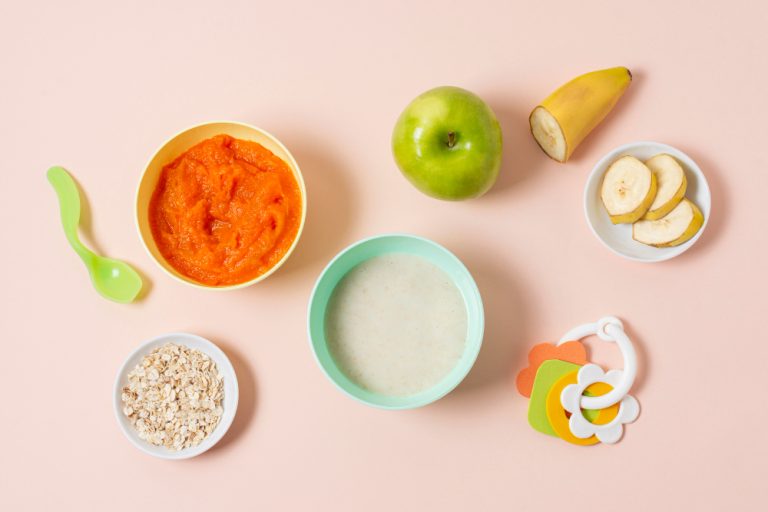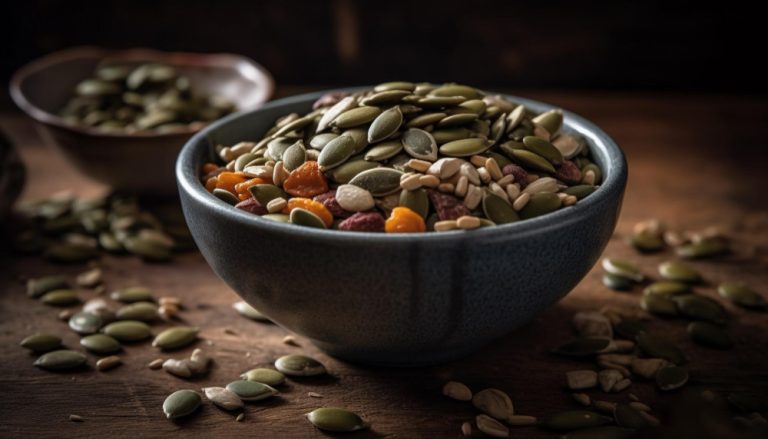Can Babies Have Cinnamon? Introducing Cinnamon to Babies
Are you constantly on the lookout for ways to give your baby the best possible start in life? Have you ever wondered if can babies have cinnamon? Well, wonder no more! In this blog, we will explore the amazing benefits of cinnamon for your little one’s health and development.
Can babies have cinnamon? The answer may surprise you! Join us as we uncover the magic of cinnamon and how it can help your baby thrive. So, let’s dive in and discover the wonders of this delicious spice!
Here’s what we’ll explore in this article:
- Timing: Find out when it’s safe to introduce cinnamon to babies.
- Benefits: Discover the potential health perks that cinnamon can offer to your little one.
- Risks and Allergies: Learn about any possible risks and how to recognize and manage allergic reactions.
- Incorporation: Get tips on seamlessly including cinnamon in your baby’s diet.
Prepare to navigate the world of cinnamon and unlock a treasure trove of benefits for your precious bundle of joy.
When can babies have cinnamon?
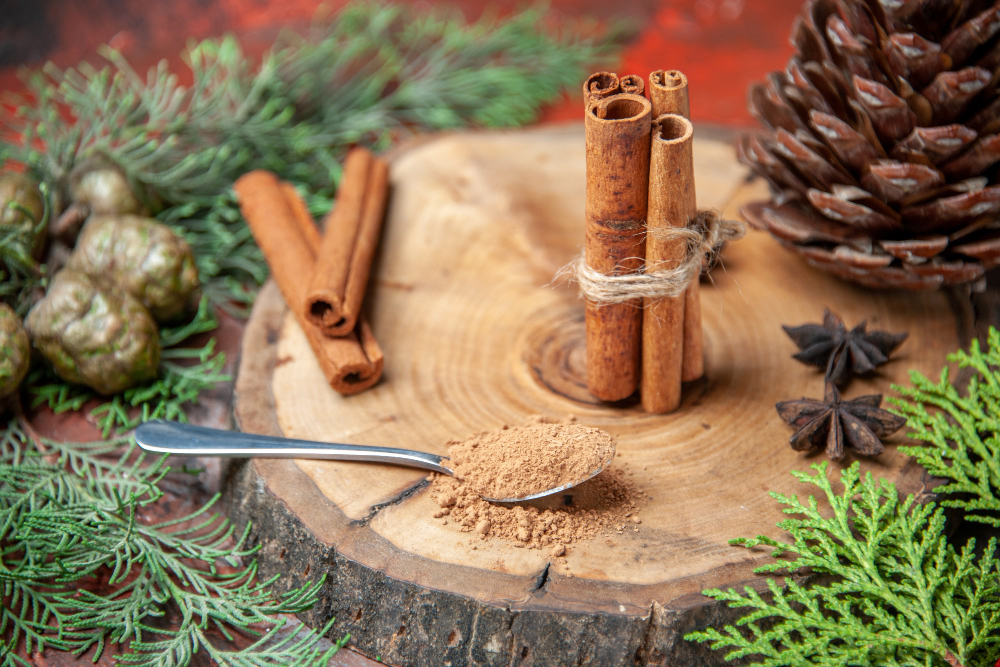
Introducing cinnamon into a baby’s diet can be an exciting milestone, but it’s essential to know the appropriate time to do so.
Most experts recommend waiting until babies are at least 6 months old before introducing spices like cinnamon into their food. This is because their digestive systems are more developed, and they are better able to handle new flavors and textures.
However, every baby is different, so it’s crucial to consider individual factors such as allergies and overall development. It’s always a good idea to consult with your pediatrician before introducing cinnamon or any other new food to your baby.
- When incorporating cinnamon into your baby’s diet, start with a small quantity to observe their reaction.
- Begin with a pinch of cinnamon powder and gradually increase it if your baby tolerates it well.
- Remember, moderation is key, and it’s important not to overload your baby’s system with too much spice.
- Additionally, consider using Ceylon cinnamon, also known as “true” or “sweet” cinnamon, instead of cassia cinnamon.
- Ceylon cinnamon has a milder flavor and lower levels of coumarin, a naturally occurring compound that may have adverse effects in large amounts.
By introducing cinnamon at the right time and in appropriate quantities, you can add a delightful flavor and potential health benefits to your baby’s diet. It’s always best to take a cautious approach and monitor your baby for any adverse reactions.
Background and Origins of Cinnamon

Cinnamon has a rich history and originates from the bark of the cinnamon tree. It is harvested by stripping off the inner bark and allowing it to dry, resulting in the formation of cinnamon sticks that can be ground into powder.
There are different varieties of cinnamon available, with Ceylon cinnamon and cassia cinnamon being the most commonly used.
Ceylon cinnamon, also known as “true cinnamon,” is native to Sri Lanka and has a mild and sweet flavor. It is often regarded as the healthier option due to its lower levels of coumarin, a compound that can be harmful in large quantities.
On the other hand, cassia cinnamon is more commonly found in the United States and has a more assertive and slightly spicy flavor. It is often used in baking and cooking.
Both types of cinnamon contain plant compounds that contribute to their potential health benefits. For example, cinnamon is known for its antioxidant properties, which can help in reducing oxidative stress and inflammation in the body.
Moderation is the Key
- It’s important to note that while cinnamon offers potential health benefits, it should be used in moderation and as part of a varied diet.
- As with introducing any new food to babies, it’s advisable to consult with a healthcare professional or your pediatrician to ensure it is appropriate for your baby’s age and individual circumstances.
- Incorporating cinnamon into your baby’s diet can be done by adding a sprinkle of cinnamon powder to foods such as purees, oatmeal, or yogurt.
- It’s always recommended to start with a small quantity and closely monitor any adverse reactions or allergies.
- If in doubt, perform a skin patch test or consult a healthcare professional before introducing cinnamon to your baby.
Remember, each baby is unique, and what might work for one may not be suitable for another. It’s essential to trust your instincts as a parent and make informed choices that align with your baby’s individual needs and development.
Is Cinnamon healthy for babies? Can babies have Cinnamon?
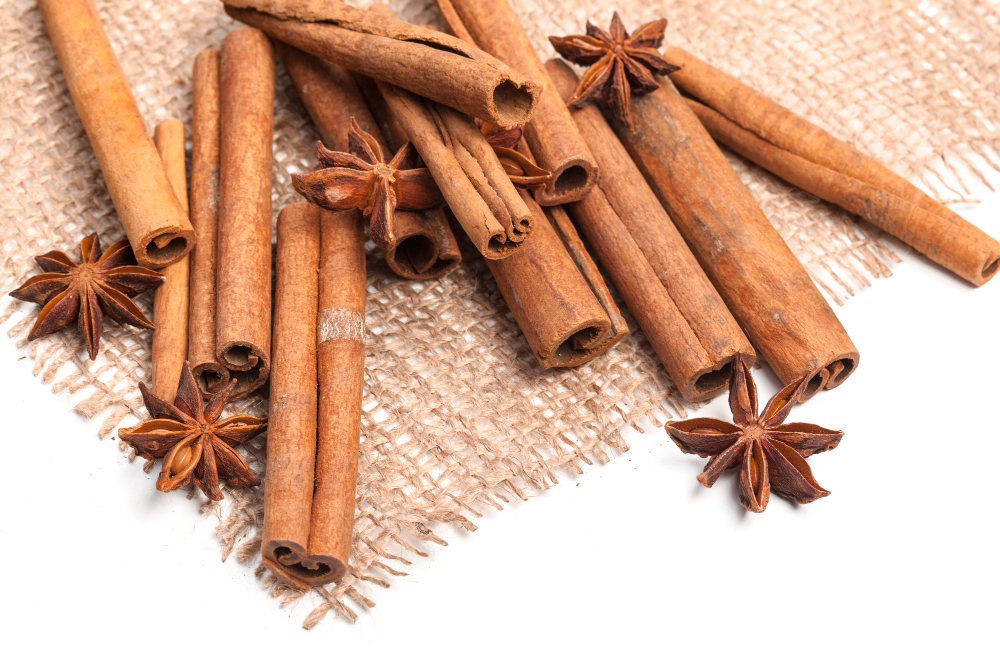
Cinnamon, known for its warm and aromatic flavor, has been used as both a spice and traditional medicine for centuries. When it comes to introducing cinnamon to babies, it’s essential to understand the potential health benefits along with any associated risks.
Cinnamon contains powerful antioxidants, such as polyphenols, that help protect the body against oxidative stress and inflammation. These antioxidants may support the immune system and contribute to overall well-being in babies.
Additionally, cinnamon has been shown to have antimicrobial properties, potentially aiding in fighting off harmful bacteria and fungi.
However, it’s crucial to note that while cinnamon can offer potential health benefits, it should be introduced to babies in small amounts and with caution.
The American Academy of Pediatrics recommends waiting until a baby is at least six months old before introducing spices, including cinnamon, into their diet. This allows their digestive system to mature and reduces the risk of adverse reactions.
- When incorporating cinnamon into a baby’s food, it is advisable to use Ceylon cinnamon, also known as “true” cinnamon, as it is considered safer than cassia cinnamon.
- Cassia cinnamon contains a higher level of coumarin, a compound that can be harmful in large quantities.
- To ensure your baby’s safety, start by offering a minimal amount of cinnamon, such as a sprinkle, and closely monitor for any adverse reactions.
- Common signs of a food allergy include skin irritation, abdominal pain, or digestive upset.
- If you suspect an allergic reaction, consult with a pediatrician.
Remember, cinnamon’s health benefits for babies should be seen as complementary to a balanced and nutritious diet. It’s always best to consult with your child’s healthcare provider before introducing any new foods or spices.
By following these guidelines, you can safely explore cinnamon’s potential health benefits for your child and make informed decisions about their diet.
Is cinnamon a common choking hazard for babies?
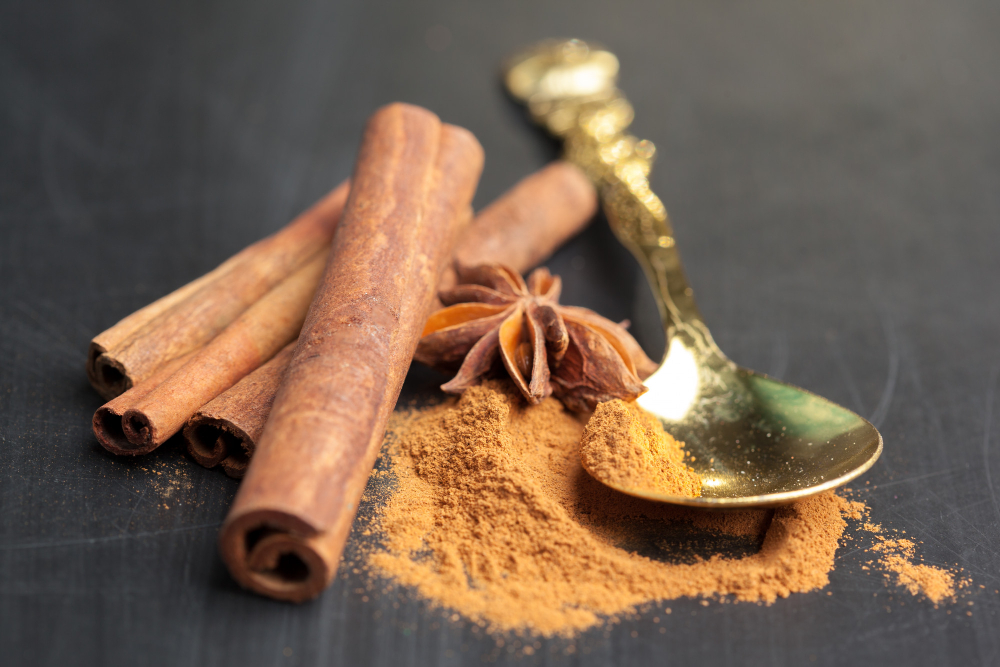
When introducing solids to babies, one of the primary concerns is ensuring their safety during mealtime. Cinnamon, although a popular spice, has the potential to pose a choking hazard to young children.
Here are some important considerations and safety guidelines to keep in mind when introducing cinnamon to your baby’s diet:
1. Texture and Consistency
Cinnamon, particularly in its powdered form, can be dry and fine. This texture makes it more prone to causing choking if a baby inhales or swallows it too quickly. Therefore, it’s essential to be cautious while using cinnamon and take measures to reduce the risk of choking.
2. Safe Usage and Infused Flavors
Instead of using loose cinnamon powder, you can incorporate cinnamon flavor into your baby’s meals through safer methods. For example, you can infuse cinnamon sticks into liquids like warm milk or use them to flavor homemade applesauce instead of using the powder directly.
3. Age-Appropriate Introductions
Experts suggest introducing cinnamon to babies who have already started eating solids and have successfully progressed through other purees and soft-textured foods. It’s generally recommended to wait until a baby is around 6 to 8 months old before introducing spices like cinnamon.
4. Proper Preparation
To reduce the choking risk, grind cinnamon sticks into fine powder using a spice grinder or mortar and pestle. This ensures a finer texture compared to commercially available cinnamon powder, which can be clumpy and harder to swallow.
5. Size and Supervision
When incorporating cinnamon into your baby’s meals, it’s crucial to ensure that the spice is finely ground and evenly distributed. Be mindful of the quantity and mix it well with other ingredients. Additionally, always supervise your baby during mealtimes to quickly address any potential choking incidents.
By following these guidelines and being aware of the potential choking hazards associated with cinnamon, you can safely introduce this flavorful spice to your baby’s diet.
As with any new food, it’s essential to monitor your baby for adverse reactions and consult with your pediatrician if you have any concerns.
Remember, every child is different, and it’s important to prioritize their safety and well-being while introducing new foods, including cinnamon.
Is cinnamon a common allergen?
When introducing cinnamon to babies, it is crucial to consider the possibility of allergic reactions. While cinnamon is generally considered safe for most babies, there is a small risk of an allergic response in some individuals. Parents must be aware of the symptoms of an allergic reaction and monitor their babies closely when introducing cinnamon.
Symptoms of a cinnamon allergy can vary from mild to severe and may include:
1. Skin irritation
If your baby develops a rash, hives, or redness after coming into contact with cinnamon, it could be a sign of an allergic reaction.
2. Digestive issues
Some babies may experience abdominal cramps, diarrhea, or vomiting after consuming cinnamon.
3. Respiratory problems
In rare cases, an allergic reaction to cinnamon can cause difficulty breathing, wheezing, or coughing.
If you suspect that your baby may have an allergic reaction to cinnamon, it is crucial to seek medical advice. Your pediatrician can help diagnose the allergy and provide guidance on how to manage it.
When introducing cinnamon to your baby’s diet, it is recommended to start with a small amount and observe for any adverse effects. You can sprinkle a tiny amount of cinnamon powder into their food or mix it into a puree.
Keep in mind that cinnamon is more commonly used in small quantities as a flavor enhancer for baby foods rather than as a primary ingredient.
Always remember to consult with your pediatrician before introducing any new food to your baby, especially if there is a family history of food allergies. By staying vigilant and monitoring your baby’s response to cinnamon, you can ensure their safety and well-being.
Recommended Guides Before Introducing Spices to Babies

If you’re looking for more information on introducing spices to babies and managing food allergies, here are some recommended guides to help you navigate this exciting stage of your little one’s development:
1. American Academy of Pediatrics
The AAP offers comprehensive guidelines on introducing solid foods to babies, including information on incorporating spices into their diet. Their website provides valuable resources for parents in understanding the age-appropriate introduction of various foods.
2. Mayo Clinic
Mayo Clinic’s website offers expert advice on baby nutrition and provides helpful tips on introducing spices and flavors to your baby’s diet. They also provide guidance on recognizing and managing food allergies in infants.
3. European Food Safety Authority
EFSA provides scientific opinions and recommendations on food safety, including the introduction of spices to babies. Their website offers valuable insights into the potential risks and benefits associated with different spices and herbs.
4. Rafie Hamidpour et al. Research Study
This research study explores the health benefits of cinnamon, including its antioxidant and anti-inflammatory properties. While the study isn’t explicitly focused on babies, it provides valuable information on the potential health benefits of cinnamon.
Remember, it’s always essential to consult with your pediatrician before introducing any new foods or spices to your baby’s diet. Every child is unique, and their dietary needs may vary.
These resources can serve as helpful guidelines, but it’s crucial to tailor the approach based on your baby’s specific needs and any potential allergies or sensitivities they may have.
By accessing these recommended guides, you can gather valuable insights and make informed decisions when it comes to introducing spices and managing food allergies for your little one. Happy exploring, and enjoy the journey of introducing new flavors to your baby’s palate!
How do you introduce cinnamon to babies with baby-led weaning?
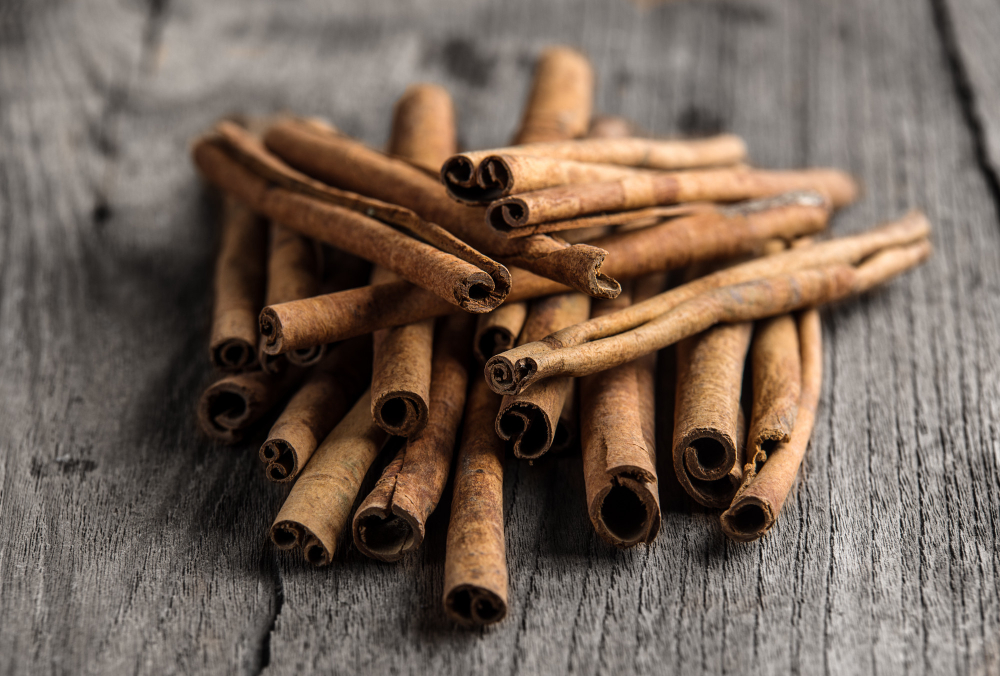
When it comes to introducing cinnamon to babies, incorporating it into a baby-led weaning approach can be a great way to introduce new flavors and textures.
Here are some specific guidelines and tips to help you incorporate cinnamon into your baby’s diet:
Start at the right age and stage
Before introducing cinnamon, it’s vital to ensure that your baby is at an appropriate age and stage for solid foods. Typically, babies are ready for solids around 6 months of age, when they can sit up with minimal support and show an interest in food.
Choose the right type of cinnamon
Opt for Ceylon cinnamon, also known as “true” cinnamon, which is considered safer for babies due to its lower levels of coumarin. This compound, found in higher amounts in cassia cinnamon, can be harmful in excess.
Begin with a small amount
Start by adding a sprinkle of ground cinnamon to your baby’s food. Begin with a very small quantity to observe their reaction and tolerance. It’s always better to start with less and gradually increase the amount as your baby becomes familiar with the flavor.
Mix it with familiar foods
Incorporate cinnamon into foods that your baby already enjoys. You can sprinkle a small amount onto mashed fruits like apples, bananas, or sweet potatoes. Cinnamon can also be added to oatmeal or yogurt for added flavor.
Monitor for any adverse reactions
As with any new food, closely observe your baby for any signs of adverse reactions, such as abdominal cramps or skin irritation. If you notice any concerning symptoms, discontinue the use of cinnamon and consult a pediatrician.
Remember, every baby is different, and it’s essential to consider their individual needs and any potential allergies or sensitivities.
Introduce new foods one at a time and watch for any signs of intolerance or allergic reactions. By following these guidelines, you can safely introduce cinnamon to your baby with baby-led weaning and expand their palate in a healthy and enjoyable way.
FAQs: Can Babies Have Cinnamon?
To sum up, the answer to the question, “Can babies have cinnamon?” is a resounding yes, but with some precautions. Cinnamon has numerous potential health benefits for babies, including antioxidant and antimicrobial properties.
However, it’s essential to introduce it at the right time and in appropriate quantities to avoid any allergic reactions or adverse effects. Remember to always consult with your pediatrician before introducing any new food to your baby.
With that said, why not try adding a sprinkle of cinnamon powder to your baby’s purees, oatmeal, or yogurt? It’s a simple way to add a delicious and healthy twist to their meals. So go ahead and give it a try!


